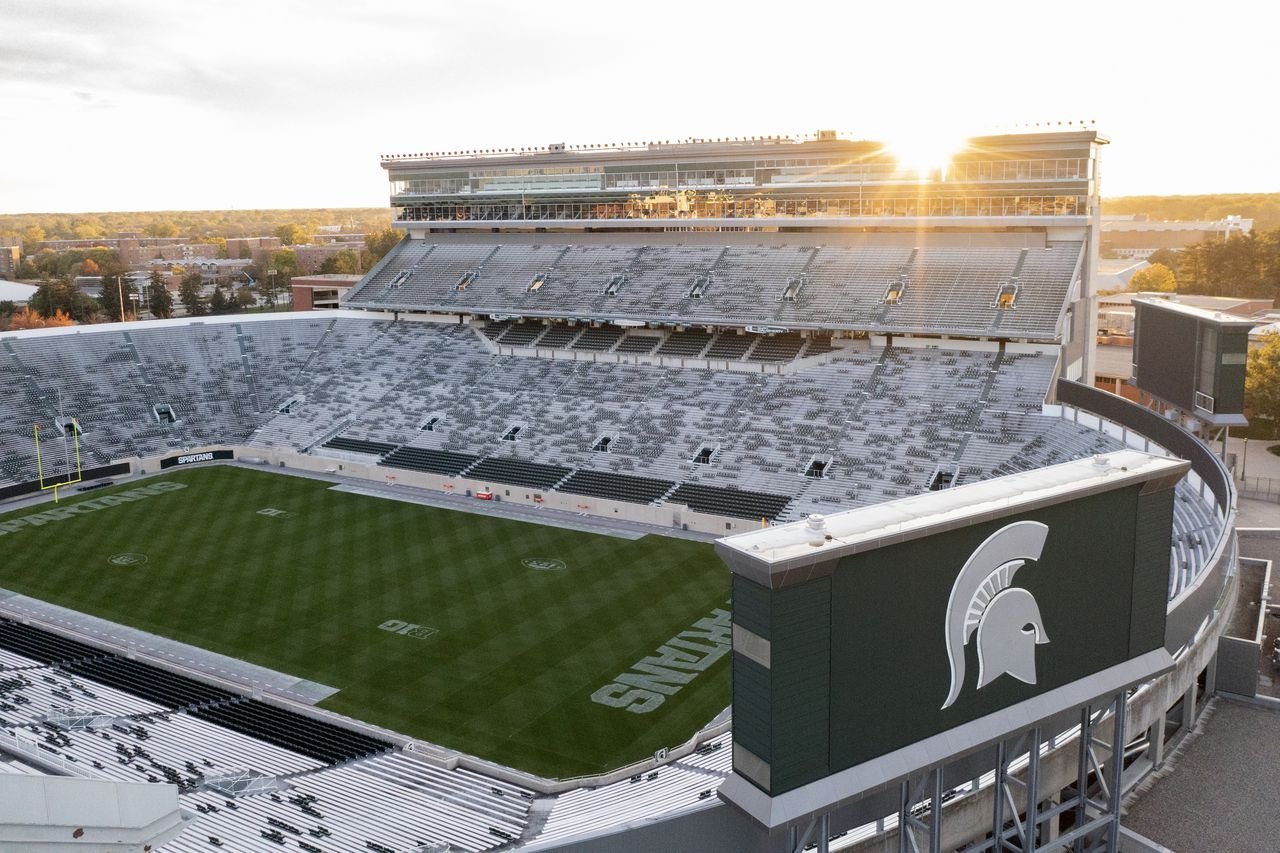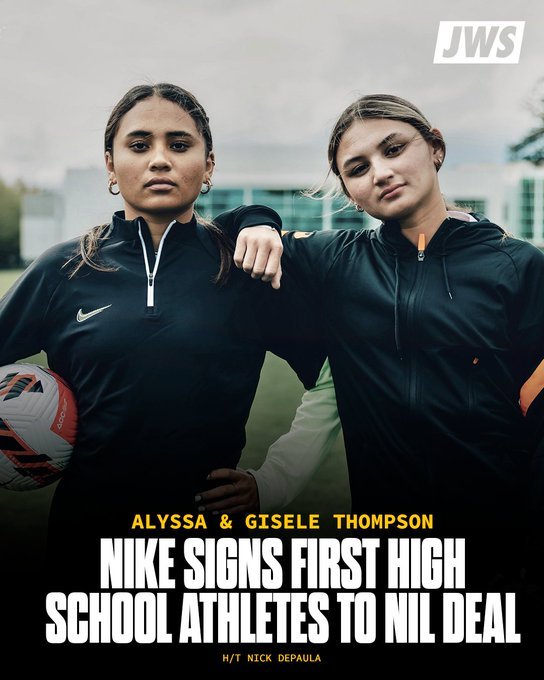An NIL Club, Portal Changes, It's All Local, High School Growth
Name, Image, Likeness Insider is a blog for brands, agencies, and sports properties. It covers the latest NIL developments and explains why those changes matter.
NAME, IMAGE, AND LIKENESS STUDENT-ATHLETE ACTIVITY OF THE WEEK
Spartan Stadium on the Michigan State University Campus in East Lansing, Michigan in October, 2021.Neil Blake/MLive.com
Not Just Another Car Deal
I can finally give my grad school alma mater - Michigan State University - some love. Let’s just say that with few exceptions, MSU athletics has not been at the forefront of much in the last 20 years. (I’m still smarting from their mid-1990’s cancelation of the men’s lacrosse program. At the time, lacrosse was already one of the fastest growing sports in the country and today the Big Ten boasts the national champ in Maryland and two other elite programs in Ohio State and Michigan. Ugh.) But let’s move on.
This past week, football players at Michigan State were the first in the country to announce a new player owned and operated venture. The “East Lansing NIL Club” will create revenue through memberships. Fans that join can meet players, go to events, and receive other benefits.
Why this matters: Most student-athletes (over 60%) still equate NIL with pro sports style brand endorsement deals. The longer that continues, the longer Name, Image, and Likeness will languish with less than 20% participation by DI student-athletes. Some of us (I know I’m not the only one!) have been screaming to anyone who will listen that NIL is about entrepreneurship. And the “East Lansing NIL Club” is an example of that kind of hustle. These types of athlete-driven entities will likely become commonplace in the coming months (Auburn just announced one too) and as they expand there will be opportunities for brand partnerships (i.e. partnering with athletes at scale.)
So Go Green! (Now bring back men’s lacrosse.)
TRANSFER PORTAL UPDATE
Change Is Coming to the Transfer Portal
The number of coaches and administrators complaining about the transfer portal - and decibel level of those complaints - makes the Saban vs. Fisher NIL dustup seem tame. They have a point in that the transfer portal has had a destabilizing affect on college athletics and it seems to be worsening. In 2020, 10% of all FBS and FCS college football players entered the transfer portal. In 2021, that FBS number increased to 16%. On June 16, 2022, the D1 Transformational Committee made recommendations for significant changes to the portal, including requiring additional accountability for schools that receive transfer and a window of time for student-athletes to enter the portal each year.
Why this matters: Let’s say you’re a brand doing a single deal or dozens of deals across the country with student-athletes. One of the key motivations for doing those deals is the impact each of those student-athletes has in their local community and on their campus. If a student-athlete transfers, the brand is left in a tough spot. They can terminate the relationship with the student-athlete (if allowed by state law/institutional policy), though the brand may face a PR backlash. Or the brand can continue the relationship with the student-athlete in the new market/one the new campus where the student-athlete likely has less following and impact (the new market may not even be one that the brand prioritizes.) So the bottom line? Less activity in the transfer portal is advantageous for brands - and for Saban, Fisher, and 25,000 other coaches.
NAME, IMAGE, AND LIKENESS MARKETPLACE TRANSFORMATION
All (or Most) Deals Are Local
There was big news last week from marketplace leader Opendorse. They announced they are launching 75 local marketplaces for their top university clients. Their competitors MarketPryce and INFLCR are launching similar products.
Why this matters: After develop national platforms (all brand and all student-athletes), these platforms are now pivoting based on data that indicates that the vast majority of NIL deals are “local” - a local brand doing a deal with a student-athlete from a nearby campus. Why this makes sense for a mom & pop local brand is obvious - why would a local brand care to partner with an athlete outside of their market? But in my experience, it makes sense for national brands too; using local marketplaces will be another tool that brands can use to string together a series of deals in the markets where they want exposure.
NAME, IMAGE, AND LIKENESS REGULATIONS CHANGES
Name, Image, and Likeness Is Coming To a High School Near You
While many of you have an uneasy reaction (to say the least) about high school athletes doing NIL deals, it’s past time to warm up to the idea. Like it or not, it’s fast becoming a reality. With the addition this month of Minnesota, Connecticut, and North Dakota, twelve states allow allow hight school athletes to earn income through their name, image, and likeness. Nine more states are considering it. And while 25 states do not permit NIL, the trend is clearly toward permitting it.
Why it matters: High School NIL changes the game - or rather starts the game earlier. I’ve had basketball agents tell me that now they’re speaking with high school players who previously they would not have spoken to for several more years. And the same may be happening on the brand side. Nike has recently done its first name, image and likeness deals with high school soccer players Alyssa and Gisele Thompson of Harvard-Westlake High School in Los Angeles. While their signing can be viewed as an offensive strategy (the players are stars and already influence a young generation of soccer players), it can be viewed as a defensive strategy too (because of NIL, they may not have been available in a few years had Nike waited.)
I consults with brands , agencies, and properties on Name, Image, and Likeness and teach NIL in College Sports at the University of Vermont’s Grossman School of Business. My NIL services include consulting, training workshops, newsletter-style monthly updates, content development, on-demand courses, and more.
I’m a SportsBusiness Journal Forty Under 40 Award winner and former co-founder of the marketing agency Fuse, which I operated for 20 years before selling in 2019.





